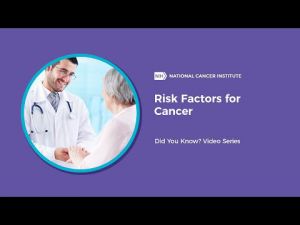About-cancer/causes-prevention/risk/zh
癌症的危險因素
通常不可能確切地知道一個人為什麼會患癌症而另一個人卻不會。 但是研究表明,某些危險因素可能會增加一個人患癌症的機會。 (也有一些因素與較低的癌症風險有關。這些因素有時被稱為保護性危險因素,或僅僅是保護性因素)。
癌症的危險因素包括接觸化學物質或其他物質,以及某些行為。 它們還包括人們無法控制的事物,例如年齡和家族史。 某些癌症的家族病史可能是可能遺傳的癌症綜合症的徵兆。 (有關可導致癌症的遺傳遺傳突變的更多信息,請參見「遺傳性癌症綜合徵」部分)。
大多數癌症風險(和保護性)因素最初是在流行病學研究中確定的。 在這些研究中,科學家研究了一大批人,並將罹患癌症的人與未患癌症的人進行了比較。 這些研究可能表明,與未罹患癌症的人相比,罹患癌症的人或多或少會以某種方式行事或暴露於某些物質。
這些研究本身不能證明某種行為或物質會致癌。 例如,發現可能是偶然的結果,或者真正的風險因素可能是可疑風險因素以外的其他因素。 但是,這種類型的發現有時會在媒體上引起關注,這可能導致有關癌症如何開始和擴散的錯誤觀念。 (有關更多信息,請參見「常見癌症的神話和誤解」頁面)。
When many studies all point to a similar association between a potential risk factor and an increased risk of cancer, and when a possible mechanism exists that could explain how the risk factor could actually cause cancer, scientists can be more confident about the relationship between the two.
The list below includes the most-studied known or suspected risk factors for cancer. Although some of these risk factors can be avoided, others—such as growing older—cannot. Limiting your exposure to avoidable risk factors may lower your risk of developing certain cancers.
- Age
- Alcohol
- Cancer-Causing Substances
- Chronic Inflammation
- Diet
- Hormones
- Immunosuppression
- Infectious Agents
- Obesity
- Radiation
- Sunlight
- Tobacco
Related Resources
Cancer Prevention Overview (PDQ®)–Patient Version
